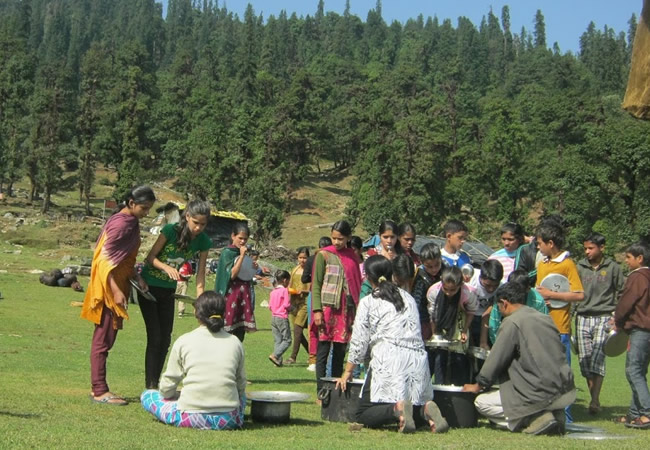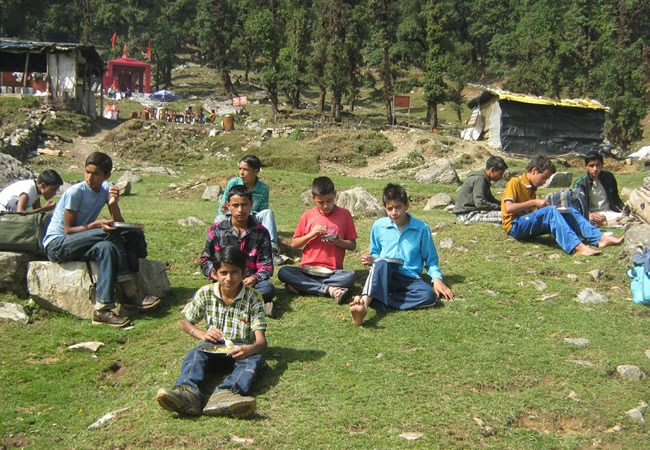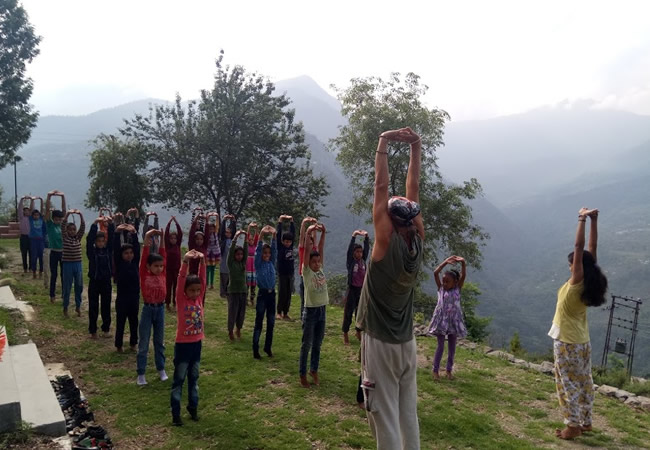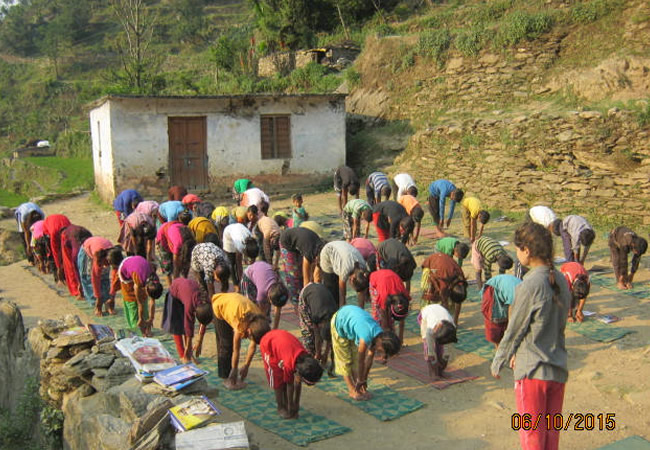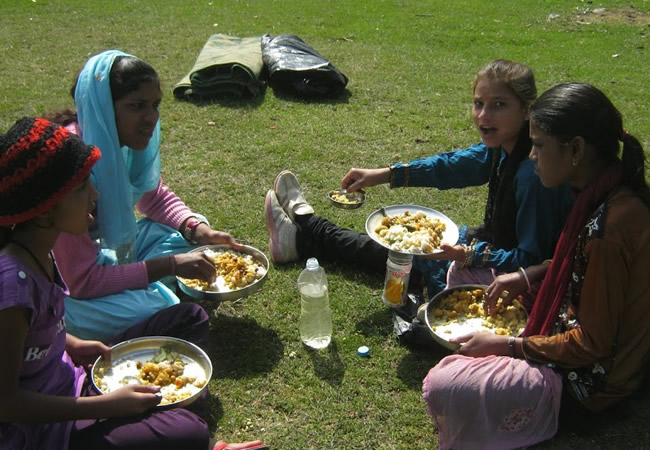This project is aimed to educate and to reproduce high values in children enabling them to become good citizens. In such times of technological advancement, cultural and environmental changes it is important to reinforce behaviour and attitudes that get back to basics promoting creativity, strong family values and care for the environment.
Area for Project: Various villages in remote areas of the Himalayas.
Duration of Project: 28 days (21 days in the villages and 7 days in the nature camp).
The project is divided into 5 steps, based on less paper work with more work on the ground.
Step 1: Meetings with village people and parents. We will visit nearby villages to discuss and introduce the project to get buy in and support. Here we request villagers for their cooperation and to send their children to participate in the project. In addition to describing the educational project, some examples of what we might also talk about are how to take better advantage of local farmlands to help prevent major youth migration and to provide a better local economy. How to grow more valued herbs and organic grain from farmland.
Step 2: We go with our volunteers and educate the children as follows:
(a) Computer education: Very much in demand in this modern age.
(b) English language: It’s about building self-confidence and helps young adults to obtain jobs in metropolitan cities.
(c) Yoga: Yoga means to join body and mind together. It has many benefits, not only for fitness but it also helps to facilitate concentration and focus.
(d) Spiritual lessons: We seem to have lost sight of our traditions, key values, and respects about society, elders and about our duties. It is important to observe our golden past and remember our Gods, Goddesses, Rishi-Munis and Gurus. We have many books and stories about these topics.
e) Environmental study: Lately we are not as aware of the environment as we could be. Often we litter plastic and garbage in our surroundings. Now it is necessary to educate children about how to protect and preserve nature and natural resources.
(f) Group discussion: Many children are becoming addicted to television and mobile phone games which can affect mental aptitude and social skills. Through consideration and discussion we encourage children to explore other after school activities such as getting outside and being active or exploring arts, creative writing or reading for fun.
Step 3: Projector show: In addition to discussions and hands on activities we show short movies and cartoons about protecting the environment as well as slide shows to educate children on local flowers, herbs and birds in the area.
Step 4: Hands on learning by experience. For example, organizing a garbage pickup evening where everyone pitches in to help pick up a small amount of litter. This demonstrates that small changes can make a big difference. Part of this activity is also educating the children that some diseases can be caused by unhealthy surroundings.
Step 5: Development of creativity: Art exists in every human being but not everyone is aware of this. This part of the program aims to bring out art from the heart and mind by exploring such activities as drawing, colouring, mendhi, singing and dancing.
We have projected 20-25 boys and 20-25 girls during 2 different times to take part in the nature camping and activities.
Sample Daily Schedule:
6:00 am wake up tea and freshen up
6:30 – 7:30 am Yoga class
(30 minutes rest)
8:00 – 8:30 am breakfast
8:30- 9:30 am lecture on environment and nature
10:00 – 1:30 pm hiking (jungle walk)
1:30-2:15 pm lunch
(2:15 – 3 pm rest)
3:00 – 5:00 pm games
5:00 – 6:00 pm Yoga class
6:00 – 7:00 pm slide show
7:00 – 8:00 pm dinner
8:00 – 9:00 pm camp fire and playing drama, poetry and singing local songs
After 9:00 pm go to bed
Note* there can be some changes according to situation and small breaks will be offered between sessions.
Sample Meals:
Breakfast: Porridge, Fruits, Parantha, Omelette
Lunch: Dal, Vegetables, Rice, Chapatti, Salad
Dinner: Soup, Dal, Vegetables (Paneer, Egg Curry), Papad, Salad, Sweet Dish
We are in favour of vegetarian meals! Note* actual meals may vary.
